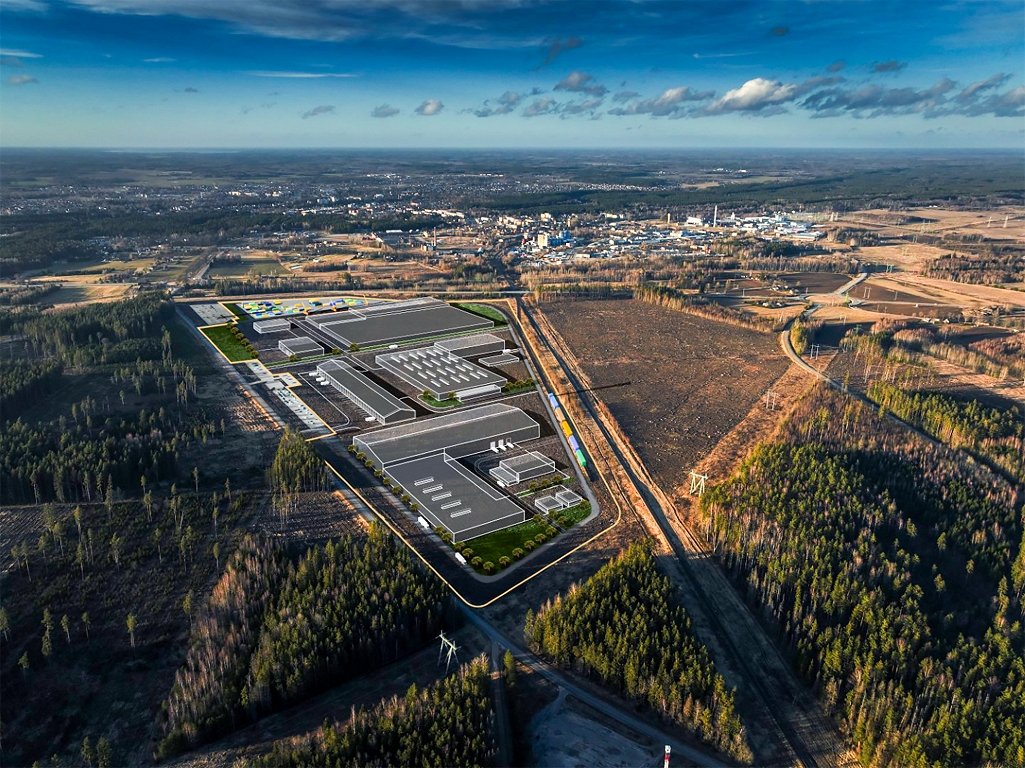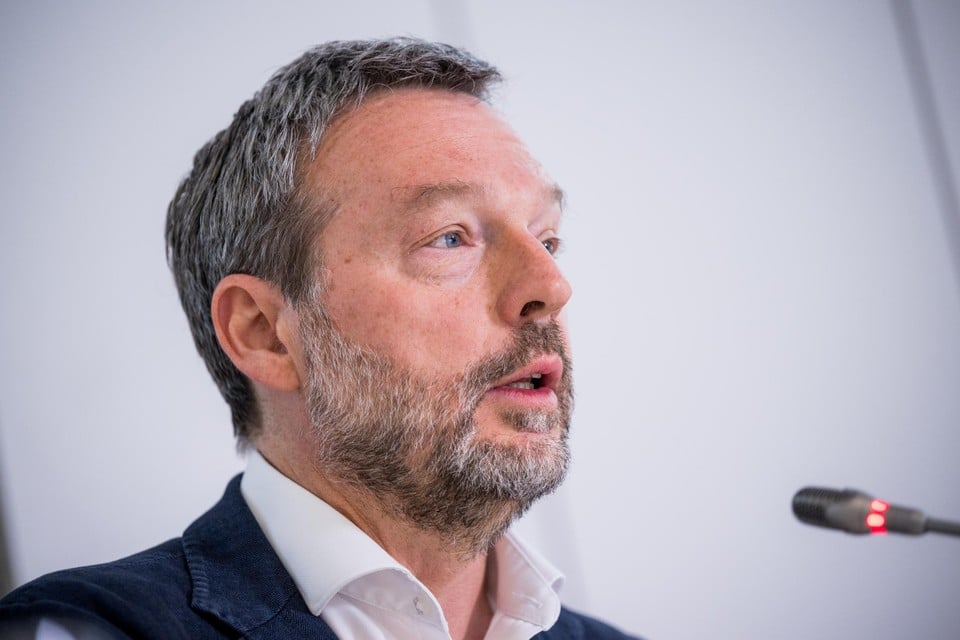Tool for better environmental projects / day

Nature protection and climate neutrality are among the most important objectives of the European Union (EU). The EU is also important regional development to increase the quality of life of the population and the competitiveness of the regions. It is important that different goals are compatible with each other. Figuratively, it would be wasted to patch one pit, digging next to another.
Therefore, various tools are introduced to promote the use of responsible resources and environmental purposes in EU investment – so that regional development also promotes the achievement of natural and climate goals or at least not harming them. One such tool is the principle of « not to cause significant damage » (NBK). The condition is that publicly funded projects will not significantly harm the environment and biological diversity.
What is NBK and why is it important?
Analysis of environmental organizations reveals: Effective implementation of NBK, including in Latvia, is challenging. The main problems are marked, but at the same time it has been identified in how Latvia can improve the application of the NBK. The challenge is also understandable and binding on this principle to explain this principle, as its implementation in practice is best marked in specific situations. In the project Effective NBK. Strengthening the principle of « not to do substantial damage » in public investment projects in public investment projects This material has also been made with the aim of making NBK environmental protection principles more understandable to everyone.
Climate and nature's goals are ambitious in the EU and are very much needed for the stability of the region and sectors – natural resources and climate stability are the basis, including the basis for the well -being of European citizens. The NBK principle was developed to ensure that public funding projects do not significantly deteriorate the climate, environment and nature. This principle is a way to prevent the contradictions between environmental goals and others, such as regional development. The NBK principle refers to infrastructure development, industry, agriculture and other sectors whose projects could have a significant impact on the environment. For example, when building a new road network for European money, you should not cause significant damage to the environment and nature. Investments, according to the regulatory framework, must comply with the NBK principle of six sub -objectives: they do not significantly contribute to climate change, support adaptation to climate change, prevent and control air, water and soil contamination, use sustainable and protect fresh water and marine resources the condition.
Since 2021, the NBC principle is attributed to EU public funding, including the mechanism of recovery and durability, the Cohesion Fund and other investment programs. It is possible that the NBK principle will be included in the EU budget for the next year and will be a prerequisite for receiving public funding. In this case, project developers should be increasingly dealing with the principle and understanding how to implement it in practice. However, in many EU Member States, including Latvia, it has been observed that the application of NBK into projects is not always smooth and easy.
How is NBK missing?
To understand how and how successful we are in the NBK principle in investment projects in Latvia, three environmental organizations – the Latvian Fund for Nature, the World Wildlife Fund and the Society – Green freedom – studied the implementation of this principle and the three important investment experience of the Latvian recovery plan: flood risk reduction infrastructure, industrial parks and territories in the development of regional and local roads. These three investments were chosen because of the larger scale and the specifics could also have potentially greater influence.
The study revealed a number of problems that hinder the full implementation of the NBK principle. Environmental organizations interviewed both project developers and the Ministry of Responsible for the implementation of investments (Ministry of Environmental Development and Regional Development and the Ministry of Agriculture). In the case of all three investments, it was concluded that the assessment of the NBK often overlaps and repeats the regulatory enactments, rather than guaranteeing broader environmental protection. For example, the rule to properly process and transport asbestos or new buildings to use appropriate waterproofing are requirements that are already introduced in the industry and are not surprised. The developers of Valmiera Industrial Park acknowledged that the known regulations had previously been counted on, but there was a lack of specific examples and the right practitioners on the part of the European Commission, which the performers could include in the project.
The capacity of public authorities and projects and previous contacts with this issue are of great importance. For example, both vsia Latvian State RoadsBoth the developers of Valmiera Industrial Park, whose representatives were interviewed by environmental organizations, admitted that this was the first contact with the NBK principle and had to learn much. It would have been helpful to receive more explanatory and detailed information: how to evaluate NBK's six sub -objectives and what activities to introduce.
Environmental organizations believe that a detailed analysis of ecological impact would benefit from several projects to prevent ecosystems from degrading and harm to biological diversity. The experience of environmental organizations gained in this project and over the years shows that it is very important to rely solely on specially protected areas to protect nature values. More than half of the valuable habitat area and many species in Latvia are without real protection. Even in the case of two environmental goals, such as military pollution remediation and the protection of valuable species faced by the developers of the Valmiera Industrial Park, it is necessary to think about how to deal most successfully in the context of such horizontal principles.
Such and similar shortcomings are not unique to Latvia, but are also found in other EU Member States. For example, cee organizations Bankwatch Network Cases conducted reveals: Investment projects in water management in Poland and central heating in the Czech Republic have been faced with unconcross and insufficiently clear guidelines from the European Commission, while in Estonia Rail Baltic In the event of an investment, as in Latvia, projects are not always evaluated in all their volume and development. A clearer framework and conditions could address some of the shortcomings.
Environmental organizations, following the research, summarized recommendations for the European Commission responsible for the framework and inclusion of the NBK principle. The recommendations summarize the experience of project developers, national institutions and environmental organizations and long -term observations. One of the key conclusions: the NBK principle must be in the EU's future budget, with a broader range of funds, but the NBK conditions must be equal to different funds. In order to make the NBK implementation more successful in the Member States, requirements for different sectors and each NBK sub -objective must be clarified. Third, the monitoring mechanisms must be strengthened. In the project interviewed public authorities acknowledged that project monitoring, that is, whether and as a project to follow the long -term principle of the NBK and whether the steps in the project to adhere to the NBK correspond to reality, less attention has been paid. Although very important, this feature is the least clarified.
How to promote NBK more efficient implementation in Latvia?
The implementation of the NBK principle is not a long history. It is only normal to face challenges. The study shows that we all have a relatively new experience that requires additional resources, time and delinquency in the meaning of the NBK principle. If we are all at the same time, we do not always share this experience. The effectiveness of the implementation of the NBK depends on understanding and the experience, the clarity, detail and availability of information and rules so far, oversight, as well as successful coordination between state institutions and investment recipients.
«Latvia's experience shows: Effective implementation of the NBK requires a clearer approach and closer cooperation between the authorities, investors and environmental experts. We see that specific guidelines for sectors should be developed in order to ensure a unified understanding and consistent approach to the application of the NBK principle. The understanding of the practical application of the principle should also be strengthened. The NBK principle is not a bureaucratic formality-it is an opportunity to develop long-term and environmentally friendly economic growth, ”emphasizes Baiba Vitajevska-Baltvilka, head of the Latvian Nature Fund's policy direction.
In order for Latvia to fully use the potential of the NBK principle, the NBK criteria between EU funds and national funding tools must be adapted to more independent environmental and nature experts in project planning, as well as in projects with a higher risk of impact.
The NBK principle is not simply understood, but it is an important tool to ensure the long -term public interest. Not to cause significant harm is the minimum of environmental hygiene that anyone who wants to attract investment and cooperation partners must be observed. Many companies and developers are moving further – planning projects with a positive impact on nature and the environment. Adherence to the NBK principle is a step towards a more qualitative, forward -looking and responsible development of the country. Only by ensuring that all public projects are implemented with careful environmental impact assessment, can we guarantee that future generations will have access to a healthy and favorable living environment.








